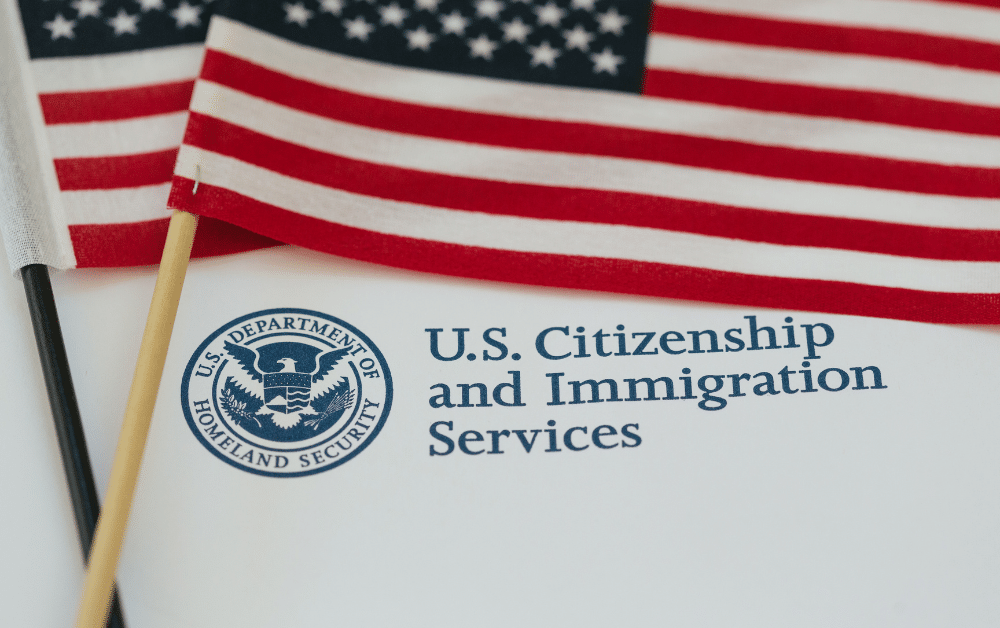Green Card Tax Implications for Expats: What You Need to Know Before Applying

Here’s the reassuring truth: According to the IRS, you become a U.S. tax resident the moment you receive your green card. However, most green card holders living abroad end up owing $0 in additional U.S. taxes thanks to two powerful IRS protections.
If you’re an American expat considering a green card application, the most significant change isn’t the immigration benefits; it’s the tax obligations. Once you have permanent resident status, you must report your worldwide income to the IRS annually, just like U.S. citizens living abroad.
But before you panic about double taxation, here’s what we’ve learned from helping over 23,000 expats file over 71,000 returns: green card holders can almost always eliminate their U.S. tax liability using the Foreign Earned Income Exclusion (FEIE) or Foreign Tax Credit (FTC). The key is knowing these options before you apply, not after you receive your green card.
Will I Owe U.S. Taxes on My Foreign Income as a Green Card Holder?
Probably not, but you’ll still need to file U.S. tax returns reporting your worldwide income.
Green card holders face identical tax obligations to U.S. citizens abroad. You must file Form 1040 annually and report all income sources, regardless of where you live or work. However, two IRS provisions can eliminate or dramatically reduce your tax liability:
The Foreign Earned Income Exclusion lets you exclude up to $130,000 of foreign earned income (2025 tax year) from U.S. taxation. You qualify by passing either the Physical Presence Test (330 days abroad in any 12-month period) or the Bona Fide Residence Test (full calendar year abroad as a resident).
- Example: Maria works in Berlin, earning €80,000 annually. Using Form 2555, she excludes her entire salary from U.S. taxation, resulting in $0 U.S. tax owed.
The Foreign Tax Credit provides dollar-for-dollar credits for foreign taxes paid. If you’re in a high-tax country, these credits often completely exceed your U.S. tax liability.
- Example: James works in London, earning $95,000 and paying $30,000 in UK taxes. Using Form 1116, he applies his UK taxes as credits against his U.S. tax bill, eliminating what he owes to the IRS.
How Do Green Card Benefits Compare to Citizenship for Taxes?
From a tax perspective, green card holders and U.S. citizens face identical obligations when living abroad.
Both must file annual U.S. tax returns, report foreign bank accounts, and comply with the same deadlines. The key difference is that green card holders can abandon their permanent resident status if the tax burden becomes unmanageable, while U.S. citizens cannot easily escape their tax obligations.
However, green card holders who’ve been residents for 8 of the past 15 years face an exit tax when abandoning their status, making the decision more complex for long-term residents.
What About FBAR and Other Reporting Requirements?
Green card holders must file the same forms as U.S. citizens abroad.
If your foreign bank accounts exceed $10,000 at any point during the year, you must file the FBAR (FinCEN Form 114) by April 15, with an automatic extension to October 15. High-asset individuals may also need to file Form 8938 under FATCA reporting requirements.
These forms are informational only—they don’t create additional tax liability, but failure to file can result in significant penalties starting at $12,000+ annually.
Get the Free Download That Makes Filing Taxes Simple
"*" indicates required fields

When Do Green Cards Make Financial Sense for Expats?
Green cards often work well financially for expats in specific situations.
- For expats in low-tax countries like the UAE or Singapore, the FEIE typically eliminates most U.S. tax liability while providing valuable immigration benefits.
- For high earners in high-tax countries like Germany or Canada, the Foreign Tax Credit often provides complete relief from U.S. taxes, making the green card’s benefits essentially “tax-free.”
- Maintaining permanent resident status provides long-term flexibility for expats planning to return to work or retire in the U.S. despite annual filing requirements.
What Are the Disadvantages of Obtaining a Green Card?
The primary drawbacks center around compliance obligations, not necessarily owing additional taxes.
- Annual U.S. Tax Filing Requirements: You must file U.S. tax returns every year, regardless of where you live or work, even if you owe $0. This creates ongoing paperwork obligations that nonresident aliens don’t face.
- Worldwide Income Reporting: Unlike tourists or temporary workers, you must report all income from every source globally—salary, investments, rental properties, freelance work, everything.
- Foreign Account Reporting: If your foreign bank accounts exceed $10,000 at any point, you must file FBAR annually. High-asset individuals also face FATCA reporting requirements with Form 8938.
- Physical Presence Limitations: Extended absences can jeopardize your green card. Generally, trips longer than one year require re-entry permits, and extended absences may be viewed as abandoning your permanent resident status.
- Selective Service Registration: Males aged 18-25 must register within 30 days of their 18th birthday. Failure to register can affect future citizenship applications.
- Potential Exit Tax: If you abandon your green card after being a resident for 8 of the past 15 years, you may face significant exit taxes on unrealized gains.
- Risk of Losing Status: You can lose your green card for various reasons, including felony convictions, fraud, or extended absences without proper documentation.
- Limited Political Rights: While you can contribute to political campaigns, you cannot vote in federal elections or hold certain government positions.
- Deportation Risk: Unlike U.S. citizens, green card holders can still face deportation for certain criminal convictions or immigration violations.
However, most compliance challenges can be managed effectively with proper planning and professional guidance. Our clients consistently tell us that the peace of mind from having their taxes handled correctly far outweighs the complexity.
Are There Situations Where Green Cards Don’t Make Sense?
Yes, particularly if you plan to permanently live abroad without the intention to return to the U.S.
Consider alternatives if you want to avoid annual U.S. tax filing obligations entirely, live in a very high-tax country earning significantly above the FEIE exclusion limit, or don’t need the immigration benefits that permanent residency provides.
How Can I Make Sure I Get This Right?
Green card tax planning works best when you understand your obligations before applying, not after receiving your card.
We regularly work with prospective green cardholders at Greenback to map out their tax strategy in advance. This proactive approach prevents surprises and ensures you’re prepared for the compliance requirements from day one.
Whether you’re considering a green card application or already have permanent resident status, implementing the right tax strategy for your situation is key. With proper planning, most expats find that green card tax obligations are manageable while providing significant immigration benefits.
Ready to get your green card taxes done right? Contact us, and one of our customer champions will gladly help. If you need specific advice on your tax situation, click below to get a consultation with one of our expat tax experts.
The information provided is general and should not be considered tax advice. Tax laws are complex and subject to change. Consult with a qualified tax professional for advice specific to your situation.



